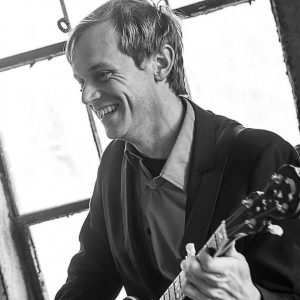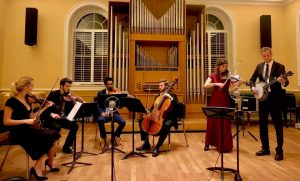Welcome back to the Faculty Features series! Every Friday during this eight-week series we’ll be sharing a short interview with some of our faculty members; highlighting their teaching, upcoming courses, and getting to know them better! Today we’re featuring Professors Michael Figueroa, Jason Foureman, Jeffrey Fuchs, Susan Klebanow, and Hank Smith.
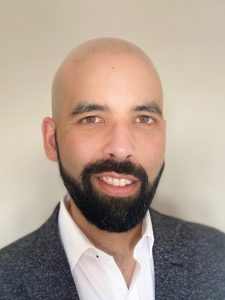
Assistant Professor Michael Figueroa
What is your position on faculty and what courses are you teaching next semester (and this summer, if applicable)? I currently wear three hats. My primary position is as Assistant Professor of Music. I am also the Associate Director of the Carolina Center for Jewish Studies and Coordinator of the Faculty of Color and Indigenous Faculty Group at the Institute for Arts and Humanities. [note: teaching assignments have not been decided yet for Fall 2021]
What is your favorite part of teaching? My favorite part of teaching is mentoring students in original research, whether as part of a class project, a thesis or dissertation, or a summer project, as in the Moore Undergraduate Research Apprentice Program, for which I’ve served as a mentor for the past three years. Helping a student to take a deep dive into their own original questions and ideas—by providing them with access to research methodologies, resources, and opportunities—is by far the most rewarding part of my career. It’s where you see sparks become fire. What is the project that you’re most excited about currently? At the moment, I’m most excited about my ongoing research on Arab American music and racial identity. For the past several years—prior to COVID—I’d been traveling around the country to conduct ethnographic fieldwork at music festivals, interviews with musicians, and related research on how folks with roots in the Arab world are negotiating shifting racial frameworks in the US. We are amid a moment of racial formation that is dynamic, and often messy—even self-contradictory—a moment that is part of a much longer transnational history of colonialism and enslavement but also a specific US-American narrative that is baked into the very founding of the state to which my ancestors from the Middle East migrated in the late 19th and early 20th centuries (on my mother’s side; my father’s side is from Puerto Rico). To be sure, the question of Arab race has been part of this broader puzzle, but it has been intensified by the fallout of the September 11 attacks in 2001 as well as the upheavals of the last five years or so, with the hyper-visibility of white supremacy within the mainstream of political life and indeed higher education, even on this campus. In so many words, my research looks at how Arabs fit in to the picture, and how music—surprising as it may seem—can be a critical entry-point for understanding this. My project is a multi-sited ethnography, wherein I examine sites of music making as sites of world making. Within this context, I look at music in a few ways: as “texts” (or better yet “acts”) that can be analyzed according to the discourses they promote—for example, songs whose lyrics or whose production, including samples, modes, and rhythms, says something about the artists’ views on their identity—but perhaps even more importantly, I look at musical events and organizations as hotbeds of racial discourse, as I listen to, and indeed participate in, the conversations that happen around the edges, in the crowds, during downtime between sets, and so on. Documenting the lives and music of these folks is critical to understanding the full scope of racial formation in America. And this is something that the connections that I forge through musical encounters can facilitate. My research sites are moments of festivity and community that are defined explicitly by a racial frame, and the bonds that manifest there are often ephemeral, fleeting—indeed, one could say heterotopian. But then again, sometimes more permanent forms of friendship, or even enmity, can form there. I’m looking at all these things, and again: musical encounters are the key to unlocking the issues and entering into the space of discourse. What are some of your non-musical hobbies? Easy: soccer. In our household, we watch a lot of matches on TV. We’re big supporters of Liverpool Football Club. It’s a team based in the English Premier League that has a bunch of star players from the Global South: Egypt, Senegal, Brazil, and more. This hobby is not entirely non-musical, however, because Liverpool is known as a very musical club, with a huge canon of songs written or adapted by fans, the most prominent of which is “You’ll Never Walk Alone,” a song from the Rodgers and Hammerstein musical Carousel (1945) that was popularized in a 1963 cover version by Liverpool-based band Gerry and the Pacemakers. The song has become even more poignant to me during this time of pandemic, when we otherwise are made to feel very alone indeed. Soccer is also musical in the sense that every match has the high drama of opera, but with the open-ended nature of group improvisation as it manifests in several music traditions. The game flows continuously; the clock only pauses for halftime, and there are few opportunities for players to huddle or regroup or for the manager to initiate a change in plans. Therefore, the players depend upon their ability to respond to changes by composing in the present, and they do this together. There’s a reason they call soccer “the beautiful game.” At the same time, our family is trying to get into supporting local teams—like NC Courage, who play in the National Women’s Soccer League. Of course, there are also the teams that our students play on for the university. My kid plays in an academy in Chapel Hill. He and I kick the ball around together pretty much everyday. I was never a very gifted soccer player in my youth, but it’s been a really fun hobby shared in my family over the past several years and, especially during COVID, a great influence on our physical and mental health. If your students could learn one thing from you, what do you hope it will be? I want them to learn that the fight for equity and justice is not a peripheral battle that needs to be fought outside of the things we “normally” do, such as making and studying music. It is something that is baked into our whole lives and therefore must be dealt with in our whole lives. Fighting for equity isn’t easy, but it’s worth it. What music are you currently listening to? To be honest, my tastes are pretty eclectic. Some favorites are Frank Ocean, Rihanna, SZA, and various artists in their orbit. I love watching and listening to more avant-garde guitarists (guitar is my main instrument), such as David Torn, Yvette Young, Nels Cline…also Julie Slick, who is a tremendous bass player. In my research I’ve gotten to know a lot of fantastic musicians such Marwan Kamel and Micah Bezold from City of Djinn, Natalie Chami from TALsounds, Mirza Shams aka NAXÖ, Omar Offendum, and Thanks, Joey. I listen to all of these folks, and many others, regularly. Answering this question reminds me how incredibly fortunate I am to be able to base my entire life around listening to, talking about, writing about, and making the thing I love most. Anything else you’d like students to know about you or your teaching? I bring a lot of energy into everything I do. I see no reason not to enjoy and get the most out of classroom teaching. We’re there together for lots of different reasons, but if we develop trust and community we can work together toward a common goal. I’d also like prospective students of mine to know that I make mistakes—often, and loudly—but I own up to them and try to help us all to learn from them. Professors are human and go through the same things that students do, albeit from a different position in life. Most of us really care. Lastly, and most importantly, I’d like students to know that I want them to feel welcome in my classes, and I encourage them to bring their full selves to the experience. Come as you are and leave better for it. What is your position on faculty and what courses are you teaching next semester (and this summer, if applicable)? I am an adjunct faculty, I teach jazz bass and ensembles. I also work at the Summer jazz. workshop. What is your favorite part of teaching? Favorite part of teaching is being around the energy of the students and faculty. What is the project that you’re most excited about currently? I am most excited about an album that I released under my own name. It is entitled “Duo” and is available on Summit music and Amazon. What are some of your non-musical hobbies? I am an ultra runner. So I train for races that are from 50 to 100 miles long. What music are you currently listening to? Currently listening to my recent release! And a Sweets Edison record entitled “Patented by Edison”. Anything else you’d like students to know about you or your teaching? I am a devoted father and husband. Been married for 26 years to someone who is a health care worker on the frontlines of this pandemic. What is your position on faculty and what courses are you teaching next semester (and this summer, if applicable)? I serve as Director of University Bands and will be teaching MUSC 213.001 (marching band) in the fall. What is your favorite part of teaching? Working with the students to prepare and present performances at athletic events that entertain and engage the audience. Also, it is very rewarding to be able to provide students experiences they would otherwise not have if not for their involvement in the Marching Tar Heels. What is the project that you’re most excited about currently? The return of the band at football and other athletic events. I have really missed interacting with the students. What are some of your non-musical hobbies? Golf, spending time with my family, hanging out with my granddaughter, working in the yard, and anything that I can start and finish in one sitting. If your students could learn one thing from you, what do you hope it will be? That attention to detail matters and they are in control of the most important things; their attitude, preparation, work ethic, and how they treat other people. What music are you currently listening to? A wide range of top 40, classic rock, pop radio from previous decades, Zydeco, Salsa, classical, beach music, bluegrass, and county. I listen to a lot of different things as I look for tunes that will appeal to the various audiences in attendance at events where our athletic bands perform. And, I really do enjoy all of the various styles. Anything else you’d like students to know about you or your teaching? I am lucky in that I get to work with most of my students multiple semesters and I grow to care about them deeply and value the personal relationship we develop. I want them to have wonderful experiences in my classes and when they leave UNC, I want them to look back on their time in the UNC Bands as their favorite part of their Carolina experience. This is what motivates me daily and what makes my professional life so rich. What is your position on faculty and what courses are you teaching next semester (and this summer, if applicable)? I’m a Professor of Music and Director of Choral Choral Activities at Carolina. I conduct the Carolina Choir and UNC Chamber Singers and plan to be leading both on campus next semester. What is your favorite part of teaching? I love the community of students and bringing great pieces of choral music to life with them. It is very gratifying to work hard all semester and then have everything come together for a thrilling performance. What is the project that you’re most excited about currently? After a whole year of not singing, I can hardly wait to get in the room with my students to sing some beautiful, not-too-difficult a cappella pieces. There’s nothing like the sound of voices singing 4-part harmony! I’m also working on the Poulenc Gloria in anticipation of Carolina Choir performing it with the UNC Symphony at some point soon. What are some of your non-musical hobbies? I love to walk, read, watch movies, and do yoga. Anything else you’d like students to know about you or your teaching? I feel strongly about creating a caring, supportive community, and want students to know that no matter what their musical or vocal experience has been, the UNC choral program welcomes their participation. What is your position on faculty and what courses are you teaching next semester (and this summer, if applicable)? I am Lecturer of Banjo (which is funny because banjo players are more used to getting lectured than giving them), and I’m teaching MUSC 103-018 Bluegrass Banjo, MUSC 109-019 Bluegrass Guitar and MUSC 103-021 Mandolin. What is your favorite part of teaching? My favorite part of teaching is the students. Here at UNC, they’re so bright and talented, it makes my job really easy and pushes me to be a better musician. They’re all so full of enthusiasm and really work hard to be as best as they can. Some have even gone on to the professional music industry and I couldn’t be more proud of all of them. What is the project that you’re most excited about currently? My band, Hank, Pattie & The Current, on hiatus from the road due to the pandemic, has been busy at work writing and arranging new music. We plan to release some of it later this year. During the quarantine, I’ve also been composing 24 Preludes for String Quartet and Banjo in all twelve keys and relative minors. As of this writing, 17 are complete. We can’t wait to record, perform and share this music with the world as well! What are some of your non-musical hobbies? Even before Covid, cooking was a strong hobby, but now that eating at home is the new going out, I’ve been able to expand on that quite a bit as well! I grew up near the SC coast, so seafood is a frequent component of most meals. If your students could learn one thing from you, what do you hope it will be? I hope my students learn passion for their art and let emotion be the guide for technique, not the other way around. What music are you currently listening to? As I type this, Benjamin Britten, Piano Concerto, Op. 13:3 Impromptu. A friend and I are checking out whether or not the main theme would translate to banjo. I think, yes. Also on rotation: My Spanish Heart – Chick Corea, Fulfillingness First Finale – Stevie Wonder, Janáček – On An Overgrown Path, and there’s always a healthy amount of Kruger Brothers and Bela Fleck. Anything else you’d like students to know about you or your teaching? I’d like students to know that I try and adapt my teaching style to their learning style. So, if they may be a more visual or auditory learner, a combination or neither, I’ll always try to impart the information to them in the best manner they’ll want to understand it. It’s one thing to learn a difficult instrument like a banjo, but it’s something else entirely to also learn someone else’s approach. So, I do my best to come to them!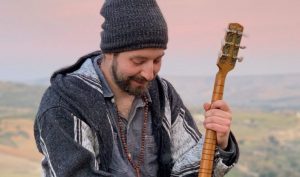
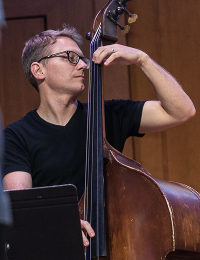
Lecturer Jason Foureman
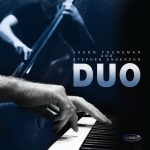 If your students could learn one thing from you, what do you hope it will be? How to be self-reliant.
If your students could learn one thing from you, what do you hope it will be? How to be self-reliant.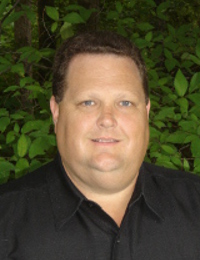
Director Jeffrey Fuchs
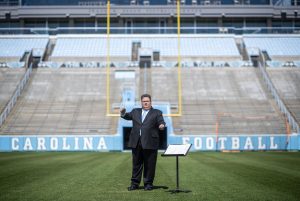
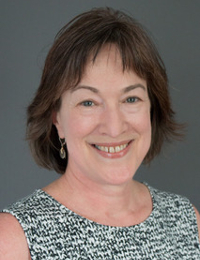
Professor Susan Klebanow
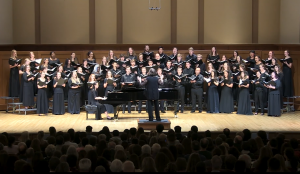
Lecturer Hank Smith
